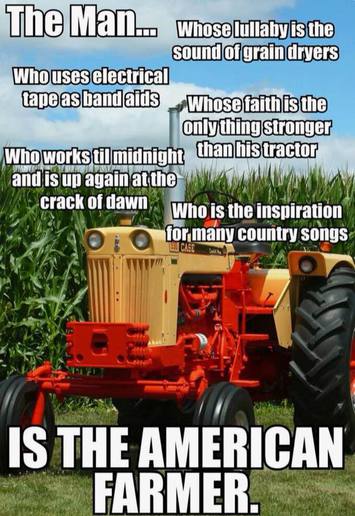You are in some ways right, JD, but having lived for 4 years near where NY 986 is, I can tell you that is NOT the whole story.
I really can't say NY is that much more difficult from a regulation standpoint as anywhere in the Midwest. From an environmental standpoint, a CAFO has a lot more hoops to jump through in WI than NY.
Some of it is just a lack of profitable natural resources as a base. Remember, much of the Midwest was settled by people leaving the Northeast looking for better land, and better opportunity. John Deere was one of those, leaving Vermont to come to IL. There are many, many towns in Illinois, Iowa, WI, etc that have the same name as some in NY. Think Waterloo IA is named after Waterloo, France or by settlers from Waterloo, NY? How about Aurora, IL? Or Batavia or Albion?
Farming there was always a bit tougher than the Midwest... whether in 1850, 1950, or 2010. Land was not as productive, and off farm jobs weren't as easy to find, as manufacturing started to leave early on, or just was never there to begin with in the way it was in say IL. NY was past the agricultural frontier when manufacturing really took off in the US in the last half of the 1800's. On the other hand, ag was going gangbusters around Milwaukee, Chicago and the Quad Cities at a time the roots of Allis Chalmers, IH, and Deere were getting going. Or countless others- Milwaukee had Hanrishfeger, Falk, Briggs, Harley, etc.
Central NY was a long way from steel, coal, consistent arable land, etc. Yes PA had many of those, but the topography really limited a lot of shipment, especially in the early days. It was much easier to transport that stuff on the great lakes than across the Endless Mountains.
When I was there, there still was manufacturing in NY- Kodak and Corningware come to mind, as does Byron sweet corn equipment. Byron had a plant near me, too, and closed it to go just to Western NY if I remember correctly. Are they still in business??? But there were many closed plants, too- Borg Warner in Ithaca and Ithaca gun come to mind.
So it comes down to a lot of factors... politics is one, but definitely not all. I agree I have to really think about when I last bought something from NY... but that holds true of Oklahoma and Utah, too.
NY 986 or others from the Empire State, hope I didn't step on toes, but was just sharing observations.


